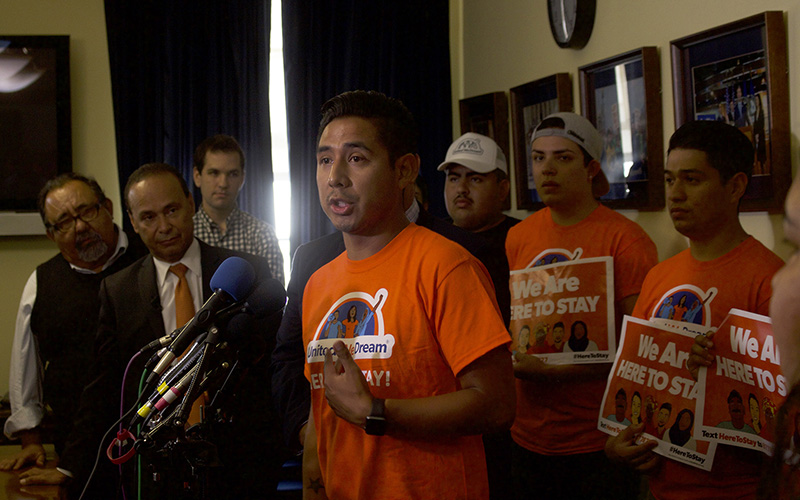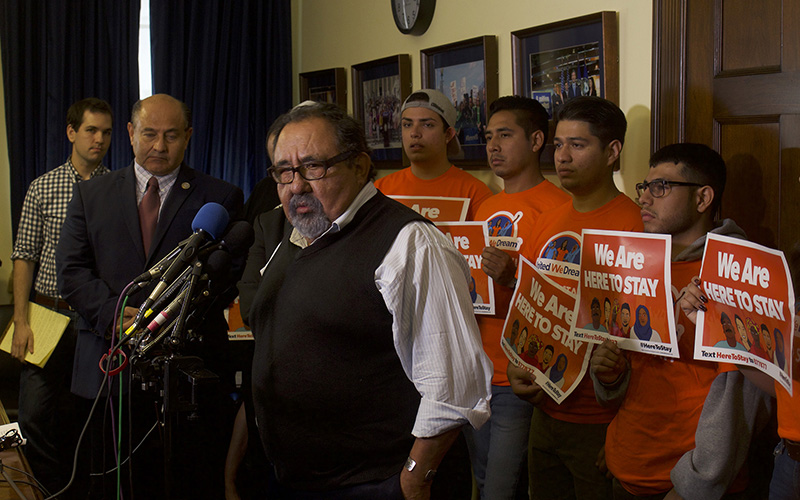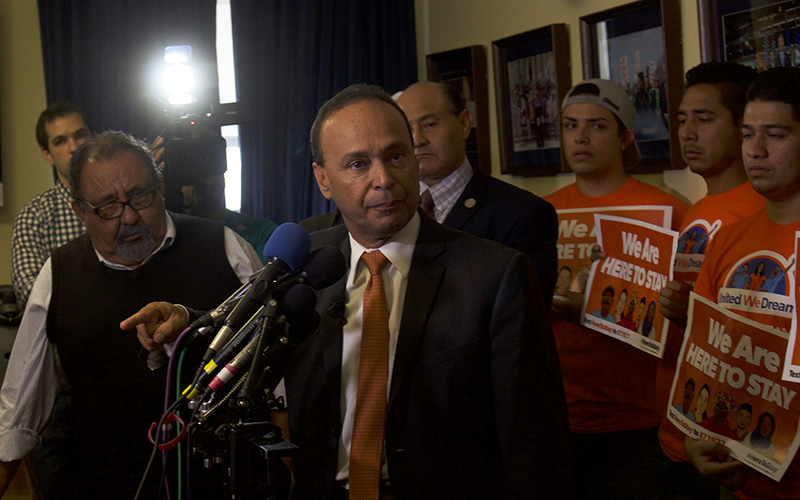
Hugo Juarez was brought to the U.S. as a child. The DACA recipient said he came to Washington to lobby openly for passage of the DREAM Act because “I’m not going to hide. I hid for 10 years in Phoenix – not anymore.” (Photo by Andrew Nicla/Cronkite News)

Rep. Raul Grijalva, D-Tucson, said that Democrats “have to be prepared to take that risk” to shut down the government in December to force a vote on the DREAM Act. “Unless we get the DREAM Act, then nothing else moves,” he said. (Photo by Andrew Nicla/Cronkite News)

Rep. Luis Gutierrez, D-Illinois, said that despite Republican majorities in the House and Senate, he thinks Democrats can force a DREAM Act vote because the Democratic Caucus has “all of the power and the leverage now.” (Photo by Andrew Nicla/Cronkite News)

Glendale resident and self-described “Arizona deplorable” Tahnee Gonzales came to the “Mother of All Rallies” to show her support of President Donald Trump and his policies. (Photo by Andrew Nicla/Cronkite News)
In the first episode of In Focus DACA Special Report, we look at the status of immigration policy as the clock ticks on a deadline for Congress.
Our theme song is “Zoo Bells” and we also used “Zoo Jungle,” both by Roddy Nikpour.
The future of 800,000 immigrants rests in the hands of a divided Congress. Lawmakers face deadlines to take action.
The Deferred Action for Childhood Arrivals (DACA) program was enacted through an executive order by former President Barack Obama in 2012. Since then, nearly 800,000 immigrants who were brought to the U.S. illegally before they were 16 years old, have been granted a temporary protective status against deportation – as long as they keep a clean criminal record, pursue an education and keep a job, among other requirements.
But the future of this program has been unclear since the election of President Donald Trump, who campaigned not only on a promise to build a wall, but also to end Obama-era “amnesty” and to strictly enforce immigration laws. And though Trump’s tough stance on immigration appears to have softened since January, DACA recipients – also called DREAMers – waited with bated breath.
They got their answer on Sept. 5, when Attorney General Jeff Sessions announced that DACA would be phased out over six months, giving Congress time to come up with a permanent solution. The move confirmed fears of DACA recipients and supporters. Groups have since rallied across the U.S. and in Washington to urge lawmakers to act.
Though the Trump administration gave Congress until March, legislators could be forced to act by December, when lawmakers have to pass a budget extension or shut the government down. Some Democrats are threatening to use the budget bill as a bargaining chip to get a vote on the DREAM Act, a bill that would formalize many of the elements of DACA.
This is the first episode in a special report of In Focus, which will count down to the December deadline while addressing various facets of the current DACA stalemate.